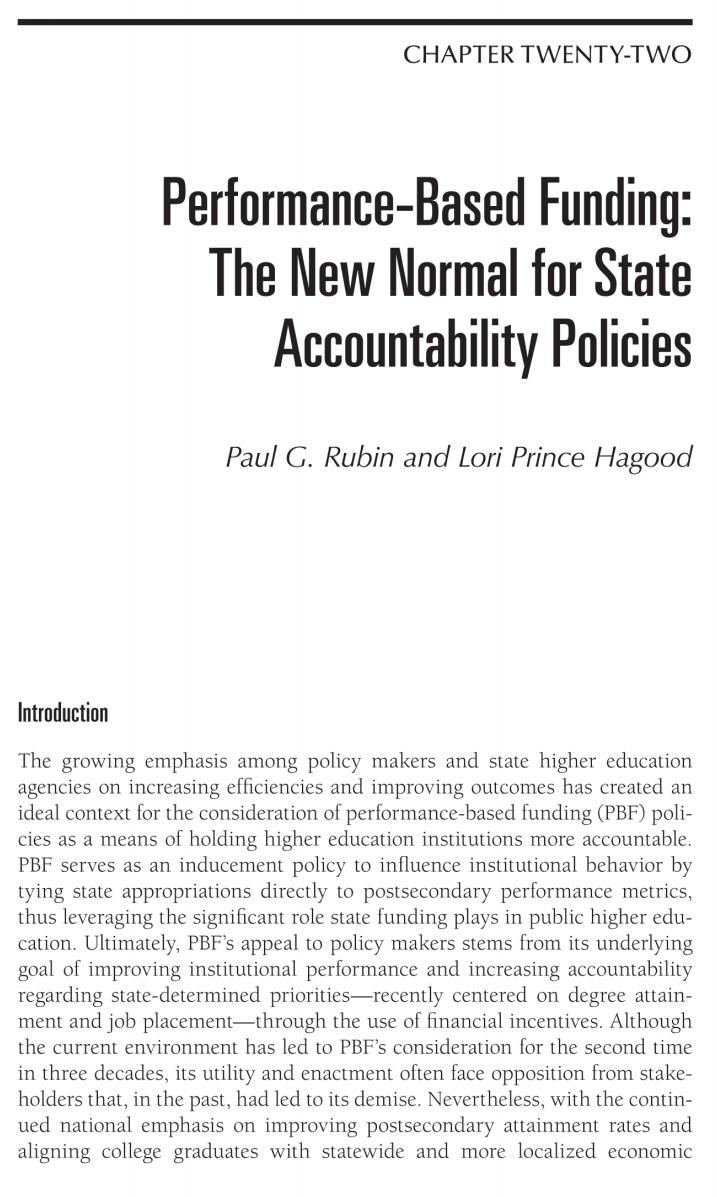Performance-Based Funding: The New Normal for State Accountability Policies
Author(s): Paul G. Rubin, Lori Prince Hagood
Publisher: Praeger
Year: 2018
Access Publication*Subscription Required
Description
The growing emphasis among policy makers and state higher education agencies on increasing efficiencies and improving outcomes has created an ideal context for the consideration of performance-based funding (PBF) policies as a means of holding higher education institutions more accountable. PBF serves as an inducement policy to influence institutional behavior by tying state appropriations directly to postsecondary performance metrics, thus leveraging the significant role state funding policy plays in public higher education. Ultimately, PBF's appeal to policy makers stems from its underlying goal of improving institutional performance and increasing accountability regarding state-determined priorities—recently centered on degree attainment and job placement—through the use of financial incentives. Although the current environment has led to PBF's consideration for the second time in three decades, its utility and enactment often face opposition from stakeholders that, in the past, had led to its demise. Nevertheless, with the continued national emphasis on improving postsecondary attainment rates and aligning college graduates with statewide and more localized economic workforce needs, PBF remains a topic of which institutional leadership must be cognizant, as it continues to spread across the country. What follows is an overview of PBF policy adoption and implementation in the United States, recent trends in PBF development, and responses to PBF and reforms enacted.

